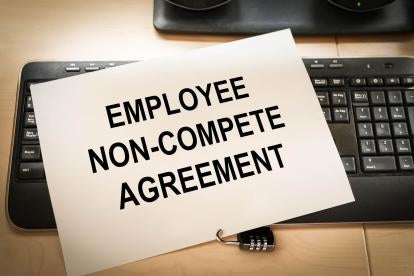Executive Summary
A sweeping bill that would effectively ban all newly entered non-compete agreements (and potentially impact provisions and agreements that act as a de facto non-compete) for all employees, regardless of wage or income level, is heading to New York Governor Kathy Hochul’s desk.
The New York State Senate passed Bill No. S3100A on June 7th and the New York State Assembly passed its counterpart Bill No. A1278B on June 20th, 2023 (the “Bill”). If signed by the Governor, the New York Labor Law would be amended to prohibit any non-compete agreement entered into or modified after the Bill’s effective date. Further proposed legislation is making its way through the legislative process that, if enacted, would make such a ban retroactive to existing non-compete agreements.
These developments follow on the heels of similar laws already on the books in several states (California, Minnesota, North Dakota, and Oklahoma), and similar federal attacks on non-competes through the Federal Trade Commission’s (FTC) proposed ban and the General Counsel of the National Labor Relations Board’s recent memo.
The Known-Knowns: A Broad Definition of Non-Competes
The Bill defines a “non-compete agreement” as “any agreement, or clause contained in any agreement, between an employer and a covered individual that prohibits or restricts such covered individual from obtaining employment, after the conclusion of employment with the employer included as a party to the agreement.”
Notably, the Bill explicitly makes an exception for an agreement that “establishes a fixed term of service or prohibits disclosure of trade secrets, disclosure of confidential and proprietary client information, or solicitation of clients of the employer that the covered individual learned about during employment, provided that such agreement does not otherwise restrict competition.” The Bill further states that it does not affect “any other provision of federal, state, or local law, rule, or regulation.” As such, it appears that the current reasonableness test under New York common law would still apply to restrictive covenants excepted from the Bill’s coverage. In other words, confidentiality agreements and client non-solicitation agreements would still be enforceable if they are reasonable in time and area, necessary to protect the employer’s legitimate interests, not harmful to the general public and not unreasonably burdensome to the employee.
The Known-Unknowns: What the Bill is Silent On
Unfortunately, the Bill is silent on whether or not it applies to employee non-solicitation agreements. The Bill also does not contain an exception for non-compete agreements signed in connection with the sale of a business. And while the definition and coverage are broad and sweeping, it is not clear that the Bill’s prohibitions would extend to retention, equity or forfeiture provisions that may or may not be linked to post-employment competitive activity.
As described below, the Bill purports to only apply to contracts entered into or modified after its effective date. However, other provisions make it unclear what impact the Bill has on non-compete agreements entered into prior to its effective date. The Bill states elsewhere that “[e]very contract by which anyone is restrained from engaging in a lawful profession, trade, or business of any kind is to that extent void” and permits a civil action to be brought after an employer takes any step to enforce “the non-compete agreement.”
The Private Right of Action
The Bill provides covered workers a private right of action to bring a civil suit against an employer who “seek[s], require[s], demand[s], or accept[s] a non-compete from any covered individual.” This civil action must be brought within two years of the later of the date (i) the prohibited non-compete was signed; (ii) the employee or contractor learns of the prohibited non-compete agreement; (iii) the employment or the contractual relationship is terminated; or (iv) the employer takes any step to enforce the non-compete agreement.
Effective Date and Impact on Existing Provisions
The Bill states that it will take effect thirty (30) days after it is signed into law and will only apply to contracts entered into or modified on or after the effective date.
As the legislature is out of session, Governor Hochul will have 30 days to sign or veto the Bill after it is delivered to her. The time it takes before a bill is delivered to the Governor is highly variable. Typically, the legislature will wait for the Governor to request the bill before delivering it. This can lead to significant delays. For example, during the 2019 legislative session, bills took an average of 114 days to be delivered to then-Governor Andrew Cuomo. In the past, interest groups have used this time to mobilize lobbying efforts to oppose, or seek material modification of, bills. If the Bill is not signed into law by the end of this calendar year, it will be automatically reintroduced at the beginning of the next calendar year.
Governor Hochul has not publicly indicated her position on this specific Bill. However, based on her stated support for banning noncompete agreements for low wage workers in the 2022 State of the State agenda, it seems likely that that she will support this Bill, which passed both chambers of the legislature with significant majorities.
If the Governor fails to act within that 30 days, the Bill does not become law. The failure to act (the pocket veto) will have the same effect as an affirmative veto.
Further Changes on the Horizon
In addition to S3100A/A1278, the New York State Senate recently passed Bill No. S6748 which would potentially bring further restrictions on non-compete agreements. S6748 contains identical language to the FTC’s proposed rule prohibiting most non-compete agreements stating:
“It is an unfair method of competition for an employer to enter into or attempt to enter into a non-compete clause with a worker; maintain with a worker a non-compete clause; or represent to a worker that the worker is subject to a non-compete clause where the employer has no good faith basis to believe that the worker is subject to an enforceable non-compete clause.”
S6748 would also prohibit any contractual term that “has the effect of prohibiting the worker from seeking or accepting employment with a person or operating a business after the conclusion of the worker’s employment” which goes much further than the Bill’s provisions.
Additionally, unlike the Bill, S6748 would be explicitly retroactive requiring that employers rescind existing non-competes and provide notice to covered individuals that their non-compete agreements have been voided.
Before S6748 can become law it must pass the New York State Assembly and be signed into law by Governor Hochul.
Key Takeaways
Employers in the state of New York should consult with experienced counsel to determine what impact these bills will have on their workforce and make plans.
Additionally, employers should:
Immediately conduct a holistic review of all plans and provisions that potentially fall within the scope of the law to determine the impact of the Bill and S6748 on their enforceability. This would include:
Offer Letters, IP/Confidentiality Agreements, Severance Plans, Equity and Deferred Compensation Plans, Retention Agreements, Non-Solicitation Agreements, Non-Disclosure Agreements, etc.
Prepare to revise/strike/amend such provisions if/when the Bill and/or S6784 go into effect.
Identify and triage key personnel who are currently bound by non-compete provisions and other post-employment obligations, and engage in workforce contingency planning to mitigate potential flight risk.
Explore alternative, going-forward pathways of both retention and protection of information that would withstand scrutiny of the Bill and S6748.
For multi-state and nationwide employers, assess how the changing landscape impacts your approach to post-employment restrictions from an institutional and cultural perspective.



 i
i


